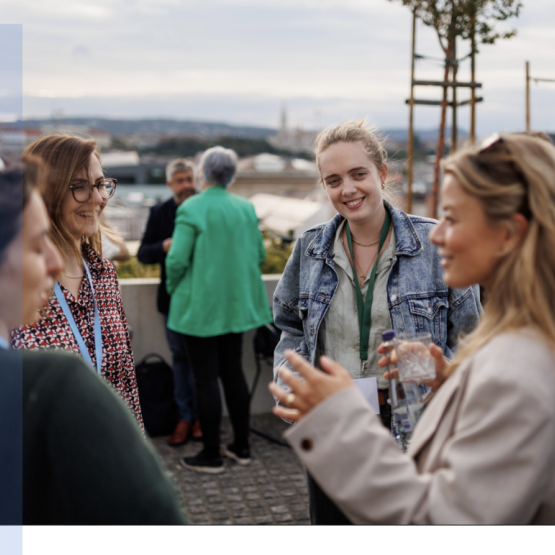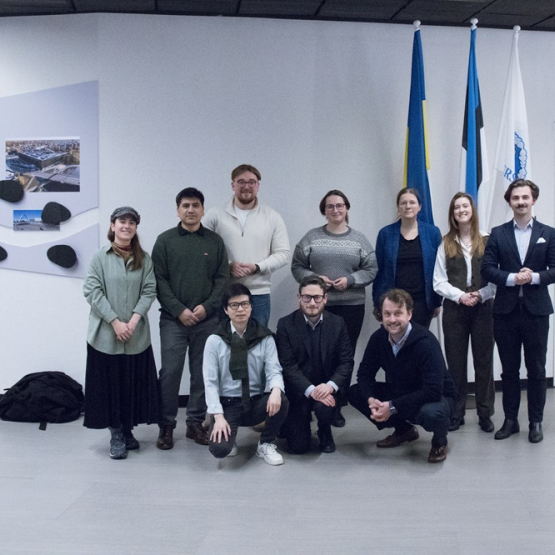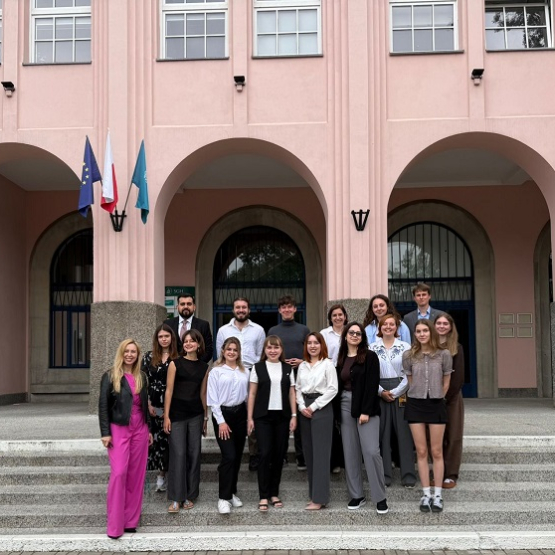
In 2023 the International Centre of SGH cleared the last projects of the old Erasmus+ perspective that has been in place since 2014: - Erasmus+ KA103 (Higher education mobility within programme countries) and accompanying OP KED project (International mobility of students with special needs) and Erasmus+ KA107 (Higher education mobility within Partner Countries).1 Let us therefore sum up the tasks, especially those performed in cooperation with non-European partners.
First recruitment for exchange programmes with European universities was announced in 2015 as a new programme titled International Credit Mobility (ICM), in Poland known as Erasmus KA107. The programme in the current financial perspective is continued under Erasmus+ KA171. Its aim is to support higher education student and staff mobility from the programme country to the partner country and the other way round, in order to let university students and employees participate in study courses, trainings or classes.
SGH, which for many years has been successfully developing collaboration with non-European schools, joined the first recruitment and obtained over EUR 300 thousand for exchanges with 29 partner universities, and extended their number and geographical scope in the following years.
Those invited to participate in the project were both previous partners (e.g. from New Zealand, USA, Argentine, Peru, or Canada) and schools with which SGH had previously collaborated in earlier projects of Erasmus Mundus Action 2 2 (such as Georgia, Moldova, Ukraine, Egypt, Lebanon, Thailand, Vietnam, Indonesia, Malaysia), as well as entirely new partners from new geographical areas: Africa (Senegal, Kenya, Tanzania, Mauritius, Morocco) or Middle East (Jordan).
ERASMUS+KA107 (PARTNER COUNTRIES) – IMPLEMENTATION OF PROJECTS IN 2015-2023

Partner relations with universities from African countries make SGH stand out among other Polish universities. Our school obtains the highest amount of funds for these countries, thereby contributing to internationalisation of African universities. Throughout the entire period of implementing KA107 projects SGH obtained nearly EUR 1.16 million, collaborating with over 60 universities across the globe, including Western Balkans, Eastern Partnership countries, southern countries of the Mediterranean Basin, Russia, Asia (industrialised countries), including Central Asia, Latin America, Africa, North and South America (industrialised countries). In total, 415 mobilities were completed, including: 25 student trips to study, 78 outbound staff mobilities for teaching (STA), 28 outbound staff mobilities for training (STT), 126 student arrivals to study, 30 inbound staff mobilities for teaching (STA), 128 inbound staff mobilities for training (STT).
Thanks to Erasmus+ KA107 projects SGH was able to expand its collaboration network to new countries and universities, and to strengthen new and already existing relations by implementing new organisational, teaching and research projects. One of them is the project New Business Leaders for a New World - BUSINESS LEAD, introduced together with Erasmus+ partner universities from Senegal, Kenya, Mauritius, Tanzania, and Morocco, about which we have already written in Gazeta SGH3. Three editions of Intensive International Education Programme (IMPK) BUSINESS LEAD, held in October 2022, and March and May 2023 were attended by 60 female students. During 2-week courses they participated in interactive classes on business models and women’s entrepreneurship, a business game, and, as part of Business is a Woman module, they took part in networking meetings with representatives of SGH Partner Club, Entrepreneurial Women Network, female entrepreneurs, and researchers in women’s entrepreneurship. An additional element of the training were visits to companies such as CIC, Google, Warsaw Stock Exchange, as well as trips to Cracow and museums enabling better understanding of Polish and European history and culture. We believe that knowledge gained by the course graduates will help them expand their businesses and will contribute to the economic development of their countries of origin.
Since the beginning of 2021 the International Centre has been running projects under the new Erasmus+ financial perspective, as a natural consequence of previous editions of the programme in which SGH has participated for 25 years. The projects include mainly CIVICA - The European University for Social Sciences4 and a new EUC-Voices project starting in September 20235.

MAŁGORZATA CHROMY, Acting Director of SGH International Centre
1 More on projects carried out under the 2014-2021 perspective can be found in Gazeta SGH of March 2021.https://gazeta.sgh.waw.pl/wspolpraca-miedzynarodowa/projekty-mobilnosci…
2 SGH was a partner in the projects of Erasmus Mundus Action 2: Mobilities for Innovation and Development (MID), Swap and Transfer (SAT), Widening Egyptian and Lebanese Cooperation and Mobility with Europe (WELCOME).
3 https://gazeta.sgh.waw.pl/wspolpraca-miedzynarodowa/new-business-leader…
4 https://gazeta.sgh.waw.pl/index.php/wspolpraca-miedzynarodowa/civica-pr…
5 https://gazeta.sgh.waw.pl/wspolpraca-miedzynarodowa/od-1-wrzesnia-br-sg…



